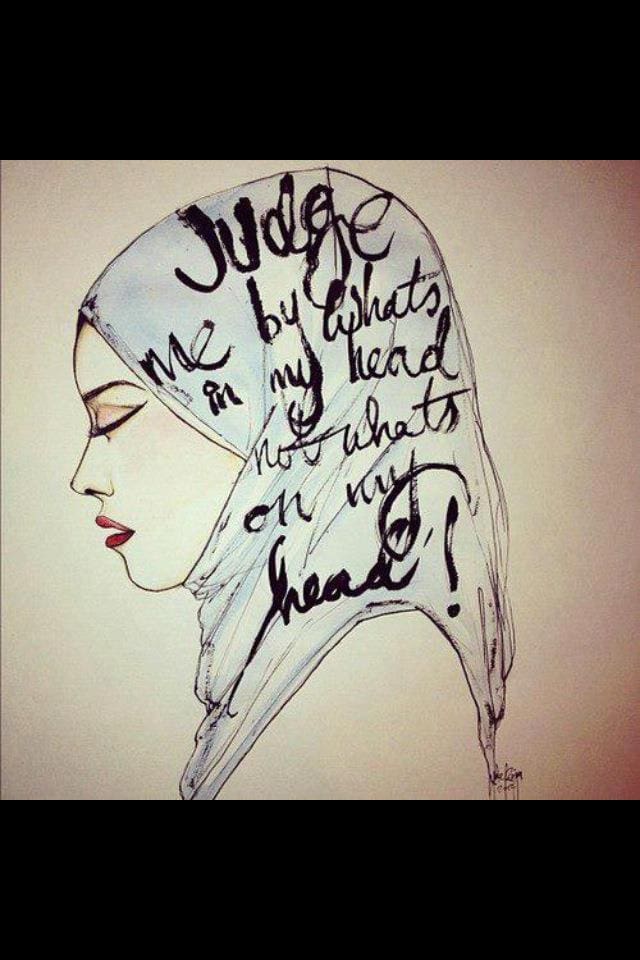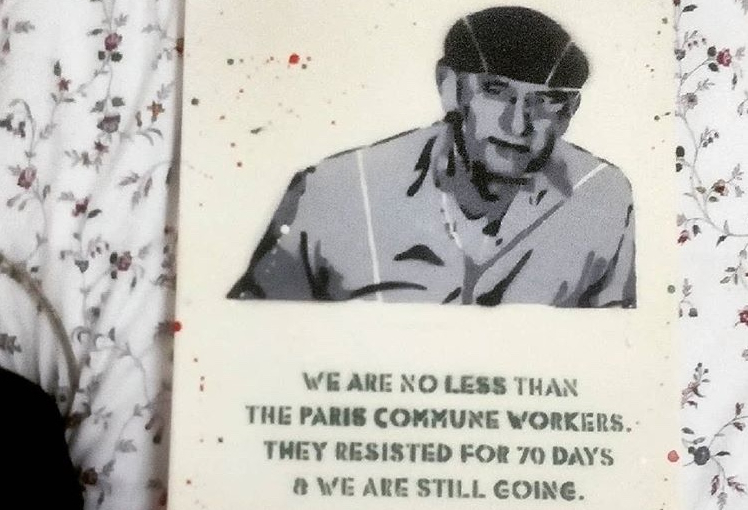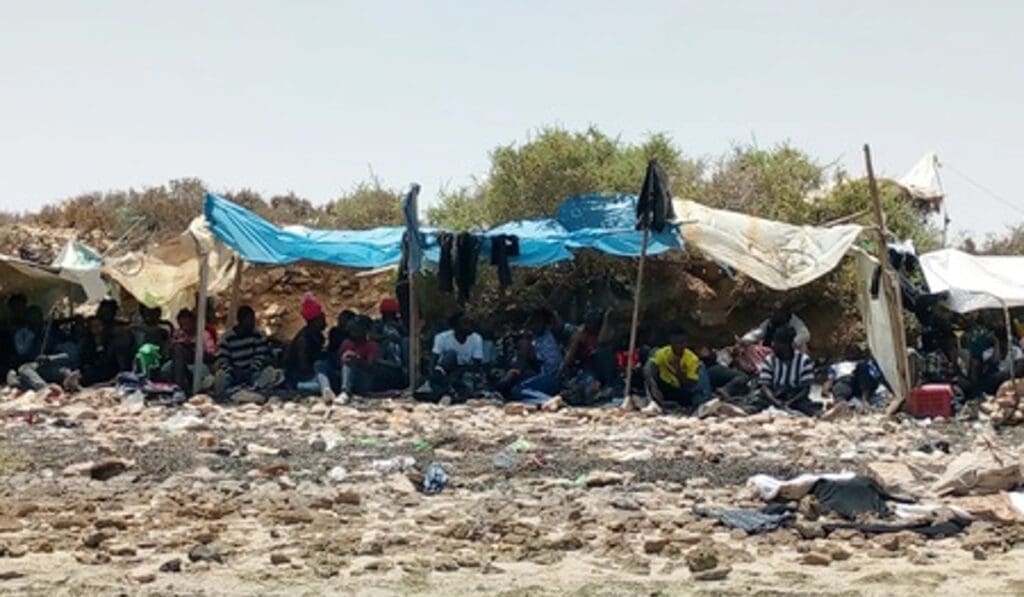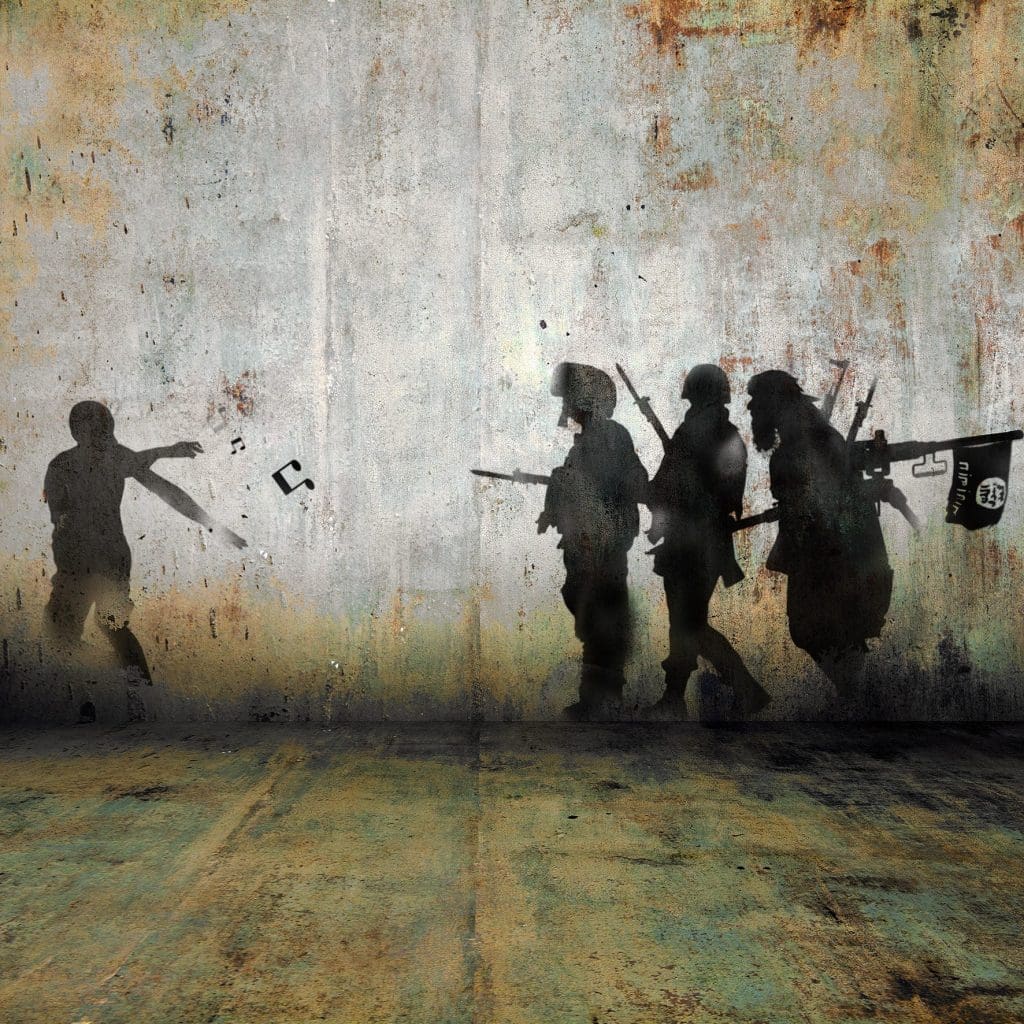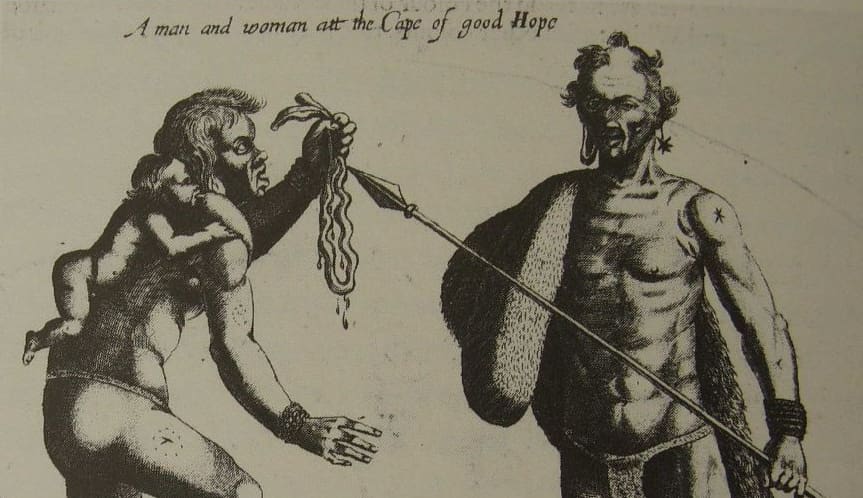Originally published in two parts on Cafe Thawra Revolution
29 November 2012 and 9 January 2013
The struggle against Islamophobia in Europe and for radical change in Middle East and North Africa societies still requires discussion inside the radical and revolutionary left, because a number of comrades sometimes find it difficult to combine both objectives for various reasons, often also contradictory. In the first part of this article, we discuss the need to struggle against Islamophobia as a central objective of the struggle for an equal and fair society, particularly in times of economic crisis and the rise of racism in Europe.
Islamophobia: Development and Dynamics
Islamophobia is firstly racism against the Muslim community, against citizens of the Muslim sect whether he or she is practicing and / or simple believer or atheist but carrying a Muslim name. Islamophobia does not measure a person’s religiosity, like anti-Semitism in the past which was worse at all levels. In the 19th century, anti-Semitism was rampant against the Jewish masses, disrespectful of their religiosity, which lived for their vast majority in political and social exclusion and in extreme poverty in Central and Eastern Europe. From 1882, the Jewish community from these regions will undergo a new wave of anti-Semitism and pogroms.
Islamophobia has increased importantly in the West after the terrorist attacks in September 2001. A new enemy was found, ten years after the fall of the Sovietic Union, and discriminatory laws against Muslim communities in Europe have experienced a boom. The image of Islam since September 11, 2001 has indeed continued to deteriorate, and the medias have played a particularly important role in reproducing stereotypes and spreading lies about this religion and its community, such as it did not entered modernity and has not made the fundamental separation between the temporal and the spiritual that allows the individual to engage in the path of reason and autonomy. A recent poll by the French newspaper has also shown that opposition to the construction of mosques has declined throughout the 90s to reach the rate of 22% in 2001, before it picked up again after the attacks of 11 September until today. There is no doubt that since September 11, the Western press in its great majority reproduced massively the theory of the clash of civilizations, in other words a war between Islam, characterized by its barbarism and terrorism, and the Christian West, civilized and democratic.
In a report published in 2012 entitled “Choice and prejudice: discrimination against Muslims in Europe,” Amnesty International writes that the organisation is alarmed by the rising Islamophobic atmosphere and many European countries (France, Switzerland, Austria, ..) are pointed for their racist practices against the Muslim community, while political parties encourage them in their quest for electoral votes, the report adds. The writer of the report described, for example the fact that “Muslim women are denied jobs and girls are prevented from going to school simply because they wear traditional clothing such as scarves (…) Men may be dismissed from their work if they have beards associated with Islam. ”
Switzerland, which is characterized by constant and increasing stringent laws against the migrant (s) with the 10th revision and tightening of asylum laws since 1981, is no exception to this Islamophobic atmosphere. In the city of Bale recently, a couple was denied an apartment because the woman wore the veil. We also remind that the Swiss Federal Court in 1997 banned all veiled women to teach in public schools.
The victory of the law banning the construction of new minarets in 2009 is still the symbol of rampant Islamophobia in these recent years and led by the UDC (Union Démocratique du Centre, extreme right wing party), which was at the origin of this initiative. A member of this party, Alexandre Muller, wrote on his tweeter account last April the following sentence: “Maybe we need again a new crystal night, this time for the mosques,” All key political parties are nevertheless touched by this Islamophobic atmosphere. Several members of the Swiss Socialist Party, as Erika Shnyder have repeatedly called for a ban on headscarves in schools in the name of so-called defense of women and secularism.
As a reminder, in 2009, the law banning the building of new minarets in Switzerland even further uninhibited reactions of individuals or groups with openly racist or discriminatory speeches and discourses across Europe. Supporters of the Northern League in Italy demonstrated against the mosque by flying the Swiss flag, which became a so called model to follow after the vote, while congratulations were sent from extreme right wing parties like the National Front in France and others, and more surprisingly from a French socialist parliamentary Jean Glavany who had defended the ban on minarets and said: “It will be understood, in recent weeks, that the light came from Switzerland. And the negative reactions heard in France against this citizen referendum show that French democracy is sick.”
Root cause: the struggle against Islamophobia
The radical left must not relegate under no circumstances the problem of Islamophobia and must make it a crucial struggle in the resistance against capitalist interests who want to impose austerity measures across Europe through the main tool of the debt, but also racism. Islamophobia, like racism and sectarianism, is an instrument of the ruling classes to divide the working class and divert them from their real enemies: the bourgeois class.
For example, in France, a new study by the National Institute of Statistics and Economic Studies (INSEE) has again singled out the blatant discrimination against descendants of immigrants, including a large majority of Muslims in the market employment. They are three times more numerous than the “native French” to be unemployed.
Trotsky argued that even if full democracy is illusory under the capitalist system, the revolutionary movement should in no way give up even under imperialism the struggle for democratic rights.
The struggles against Islamophobia and racism in general and the right to exercise freedom of conscience are fundamental in Marxist thoughts. In his critique of the Gotha’s program of the German Workers’ Party (1875), Marx explained that personal freedom in matters of belief and worship should be defined only as a rejection of state interference. He stated as a principle that : “Everyone should be able to satisfy its religious and body’s needs, without the police sticking their noses in it.” Classical Marxism, the one of the founders, has also not requested the inscription of atheism in the program of social movements.
For example, the headscarf issue is only a women’s affairs, they must decide by themselves and independently of its wearing or not. The veil imposed or withdrawn by force is a reactionary act which goes against any support for self-determination of women.
Tactics and strategies
In the struggle against Islamophobia, we must find partnership with organizations claiming their Muslim identity and fighting discrimination against their community. Against those who reject on the left any unity of actions with groups having a base or claiming a religious identity by using the famous sentence of Karl Marx, religion is “the opium of the people”, without making reference to what follows in the text, which explains the real meaning to be given to it. But a number of historical examples show the mistake of this position. The radical left has worked and fought side by side with the followers of liberation theology, based on Christian religion, in South America, which had developed a radical critique of capitalism. The Bolshevik Party did not hesitate to coordinate struggles with the Bund, General Union of Jewish Workers in Poland, Lithuania and Russia founded in 1897, which despite its atheist anti clerical and fundamentally socialist orientation, , was based on a community group. Finally Malcom X, while remaining faithful to his religious beliefs, especially at the end of his life evolved towards the left. He did not hesitate to criticize the Muslim leaders in an interview in 1965 in which he accused them of keeping people intentionally people and women in particular in ignorance. He also added that the progressiveness of a society is measured by the situation made regarding women, stating that “more women are educated and involved, more the whole people is active, bright and progressive“.
The intervention of progressive and revolutionary forces allow the radicalization of movements, and must also prevent any drift of confiscation into solely “identity” debates and “identity” political dynamics by framing all struggles in a humanist, revolutionary and universal perspective.
* * *
We have in the first part attempted to show how and why the struggle against Islamophobia is a major issue for the radical left (although it is unfortunately often overlooked by some comrades) in its struggle for an egalitarian and emancipated society against the capitalist system. In this second part, we want to demonstrate that the struggle against Islamophobia should under no circumstances be replaced by “Orientalism in reverse or in return” that affects certain parts of the radical left when we analyze the Middle East and North Africa.
The notion of Orientalism in reverse
Orientalism in return is a concept developed by Marxist Sadiq Jalal Al-Azm Syria in 1980 against what he sees as a revisionist line of Arab political thought that emerged as a result of the Iranian revolutionary process after 1979.This revisionnist line stemmed from Arab intellectuals,who were mainly coming from the ranks of the left: former radicals, ex-communists, unorthodox Marxists and disillusioned nationalists of one sort or another. This trend developed mainly following the Iranian revolutionary process. Sadiq Jalal al Azm describes this trend as a revisionist Arab line of political thought.
The central thesis behind ‘Orientalism in reverse’ that was developed by these intellectuals and and that can nowadays found in Political Islam movements can be summarized as follows, as argued by Syrian writer Al Azm: “The national salvation so eagerly sought by the Arabs since the Napoleonic occupation of Egypt is to be found neither in secular nationalism (be it radical, conservative or liberal) nor in revolutionary communism, socialism or what have you, but in a return to the authenticity of what they call “popular political Islam””[1].
Unfortunately, this trend has found followers in some currents of the Left in Europe as well, admittedly a minority, but who are nevertheless present. Political Islam becomes for this trend an agent of modernization and the Islamic religion is the essential language and culture of Muslim peoples. In their view, therefore, Islam becomes the driving force of history in the East, unlike the West, where economic interests, class struggles and socio-political forces shape history.
Political Islam and revolutionary processes
This vision tends to therefore consider political Islam as “anti-imperialist” or “progressive” actors, and comparisons with the movements of the Theology of the Liberation become numerous. We refute these adjectives in their entirety.
Liberation Theology and Islamist movements are different in nature and objectives: while the first was not so much an expression of cultural identity in the sense of self preservation vis-à-vis a dominating western “other” such as Islamic movement, it was more imbedded in the discourse of development, of emancipation of the subaltern. The Egyptian scholar assef Bayyat actually points out that while the liberation theology movement mobilized the poor, the islamist movement tend largely to target the educated middle classes, which they view as the main agents of political change. He adds also that while Islamists aim to Islamize their society, policy and economy, liberation theologians never intended to Christianize their society or states, but rather to change it from the vantage point of the deprived. The islamist movements, in comparison with theology of liberation movement in South America, have generally broader social and political objectives than simply helping the downtrodden, and secular issues such as social justice for the poor follow from the establishment of Islamic order. In addition, what most islamists share is a particular moral vision of society.
We must of course neverthless recognize the anti-imperialist elements in some movements fighting against Israel. However, resistance against Israel in these circles remain rhetoric for the most part with the exception of Hizbullah and Hamas. Nevertheless, fighting against Israel is not enough to characterize them as anti-imperialist and progressive actors. They do not actually encourage policies to empower society; they do not oppose neoliberal policies, quite on the opposite as they oppose most often workers unions and even participate in their repression. The example of the Muslim Brotherhood in power in Tunisia and Egypt is very striking on this very last issue.
The struggle against social inequality and poverty cannot be fought through charity, the element that characterizes these movements’ social action that maintains social injustice and does not question the capitalist system that allows this kind of ills. Movements of political Islam finally tend to promote the idea that the liberation and development of Arab countries depend primarily on the assertion of their Islamic identity, which is “permanent” and “eternal” in their opinion, and not on the struggle against capitalism and imperialism. Other issues may also be discussed as the struggle for women’s rights, the fight against sectarianism, the nature and structure of the State, etc.
It is certain that we must oppose the Islamophobic discourse developed and maintained by the elites and the media of the West against the movements of political Islam and oppose repression against them when it is the case in some countries. This position of principle must nevertheless not prevent us from supporting and struggling for radical change in the societies of the region. We need to develop a material and class dynamics analysis of these parties of political Islam, which as we see in Egypt and Tunisia, for example, oppose through various means the continuation of the revolutionary process and radical change.
The examples of Egypt and Tunisia
In Egypt and Tunisia, where the Muslim Brotherhood (MB) is in power, these political Islam currents have sought since the beginning of their access to power to strengthen or maintain diplomatic , economic and political ties and relations with the imperialist Western powers.
The continuation of neo-liberal policies based on the model of the previous regimes, the non-resolution of social issues and especially the attack and repression on social actors such as trade unions have also sprung new protests. The two governments are in fact in constant negotiation with the IMF and other institutions to seek and receive new loans exceeding several billions and which impose on these societies new economic austerity policies and neo-liberal measures. In both countries, social mobilizations took place against the IMF loans and austerity policies that have been choking population, as well as against free trade agreements such as the one between Tunisia and the EU that has been denounced by many parties in Tunisia, including by the Popular Front which is leading the opposition.
In Egypt, the repression against workers has indeed continued to increase with the arrival of President Morsi, MB candidate in power. Many laws and initiatives banning strikes and demonstrations of workers were implemented. The new regime is trying to break the will of the workers striking, while the Ministry of Labor is working simultaneously to weaken and to control the independent trade union movements. A 3-year sentence was pronounced against five trade unionists in September 23 2012, for example, the most severe sentence imposed in similar cases for over 30 years.
Also in Egypt, the first half of September has witnessed more than 300 protests. This was the highest number recorded since the beginning of this year. The majority of these events demanded better conditions of life and work, long-term contracts and appointments. Strikes and demonstrations have continued on a large scale since September. During the same month, two independent groups of workers and several political parties have joined forces to form the National Front for the defense of labor rights and trade union freedoms. These important steps forwards were not appreciated by the new Egyptian authorities (Muslim Brotherhood) or the old (the armed forces), which allied once again.
The alliance between the MB and the army, symbol of the old regime of Mubarak, has indeed not been questioned since the fall of Mubarak and continues as we can observe in the new Constitution of Egypt where the basics prerogatives of the military are guaranteed: a secret budget, the control of the officers on the Ministry of Defence, a strong influence in the decisions of national security and the right to trial civilians before military courts. Egyptian President Mohamed Morsi also awarded the Army on December 10 the power to arrest civilians, asking them to guarantee the security of the country until the announcement of the referendum result.
Symbolically several cities have also declared their independence from the MB’s Government in December during the Constitutional vote, including the industrial city of Mahalla, a symbol of resistance during the Mubarak years and during the revolution.
In Tunisia, the political and socio-economic struggles have not ceased, while the repression against trade unionists and other activists is constant.
Indeed in Tunisia, the militias of the En Nahda ( MB in Tunisia) movement did not hesitate to attack the headquarters of the UGTT with sticks, knives, gas bombs resulting in over a dozen of injured in Tunis. This occurred on the day of the commemoration of the 60th anniversary of the assassination of the leader and founder of the Tunisian trade union movement Farhat Hached, on Dec. 4, 2012. In Egypt, as a reminder, during the protests against the draft constitution in December, the MBs did not hesitate to use militias to quell the demonstrators, especially targeting women and removing the tents of the opponent near the presidential palace, and according to the Egyptian daily Al-Masry Al-Youm protesters (s) arrested were sent to “torture chambers” in front of the palace.
Recently, the city of Siliana (southwest of Tunis) has seen many demonstrations and strikes degenerating late November in five days of clashes between protesters and police, resulting in some 300 injured. Mobilizations of the protesters have contributed in achieving some of their demands, including the sidelining of the governor, an expedited review by the courts of record of persons imprisoned in April 2011, assistance to the wounded and the development program whose content has not yet been clarified.
The Tunisian working class is submitted to economic and social ultra-liberal policies by the current government, in continuation of the Ben Ali’s regime. Public companies are the target of the government that wants to sell them to Gulf countries, especially Qatar. The purchasing power of workers is declining; the social and economic crisis is increasing.
Since February 2012, the struggles in Tunisia have actually grown on different levels. The current Government policies, led by Nahda, are actually in total continuation of the Ben Ali’s regime policies. In recent months, waves of strikes and protests against the policies of the Islamist party Ennahda took place. In Kasserine, for example, there were general strikes, as well as in Majel Bel Abbes in August, Thala, Sbiba, Hassi Frid and Laayoune in October. There are almost weekly demonstrations and sit-ins in Kasserine and in different local areas.
The Summer of 2012 witnessed a large number of mobilizations for the right to water, the right to electricity, and for the rights of women, in the streets, but also in companies, as in the hospital of Sfax, resulting in four trade unionists jailed in August. Other trade unionists were arrested several times because of their opposition to government policies and participation in trade unionist activities such as Abdesslem Hidouri, trade unionist and one of the coordinators of the sit-in of the Casbah 1 and 2, and a member of the Left Workers League. He was arrested in the village of El Omrane Menzel Bouzayeinne following a demonstration to demand their rights to decent work and equitable development between regions. On the night of September 27, security forces attacked the demonstrators with a brutality reminiscent of the Ben Ali era, marked by looting and the arrest of 25 people, including Abdesslem Hidouri.
In October, a large gathering of lawyers, of feminists from the Tunisian Association of Democratic Women, of trade unionists and various militants from leftists organizations, journalists and artists was held before the court on the day of the case against the woman raped by policemen and then charged with molestation was being judged. Popular movements were able to put the judge under pressure to drop the charges against the victim.
Unions of journalists and the press have also mobilized to denounce the Nahda government, because of the appointment, with no consultation of editors and professional organizations, of new directors at the head of public television, radio and newspapers since the beginning of the year. The authorities have been accused of trying to control the editorial policies of the media.
Unionists play an important role in these mobilizations; a real dynamic exists between trade unionists and the rest of the social movement. The role of the UGTT is decisive for this articulation to develop.
Conclusion
Orientalists, neo-orientalists and Orientalism in reverse trends, which saw for different and opposed reasons religion as the driving force of history in this region can review their analysis as the watchwords of these revolutions were not “Islam is the Solution “, but” the Solution is permanent revolution” or “Bread, freedom and independence. “
The revolutionary processes in the Middle East and North Africa have opened a new page of struggle and emancipation, not just regionally but also internationally.

